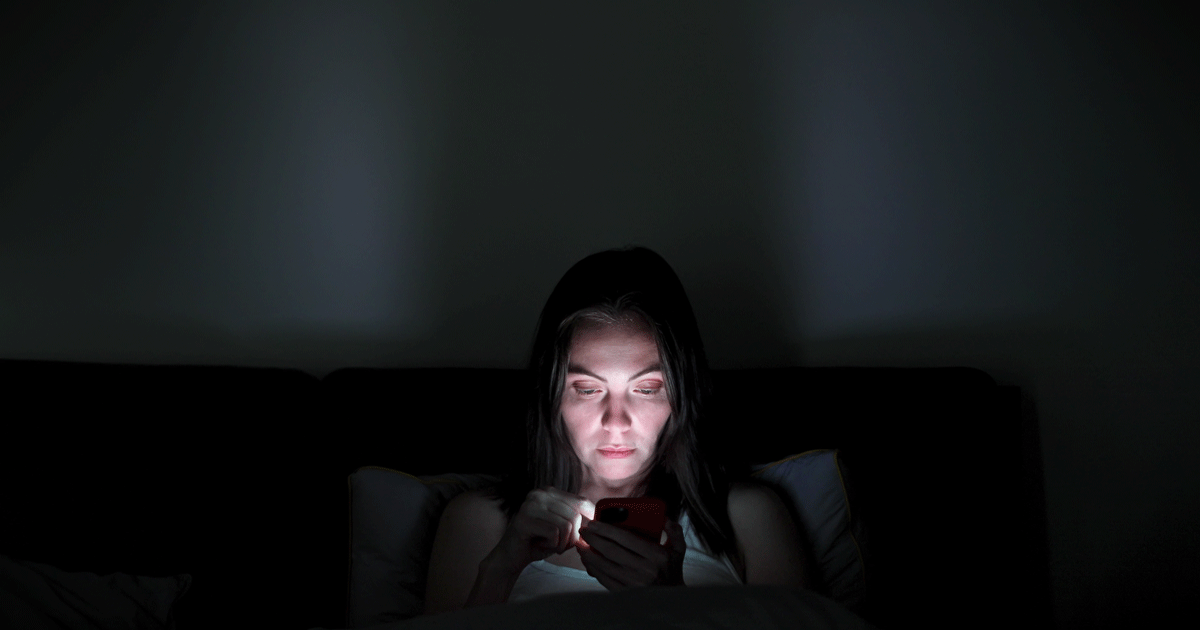Everyone needs a healthy connection with other people – it’s essential for our mental and physical health. According to the Nielsen Total Audience Report, the average American spends 11 hours a day listening to, watching, reading, or interacting with the media.
If we didn’t spend a lot of time on digital devices before, the pandemic has only increased our technology time. Isolation can be devastating. Studies show that isolation is as detrimental to our health as obesity or smoking 15 cigarettes a day. The serious psychological and emotional impact of COVID-19 was reported by the Centers for Disease Control and Prevention (CDC) in 2020, revealing worrying statistics compared to several years earlier:
- Anxiety disorder symptoms tripled (25.5% vs. 8.1%)
- Depressive disorder quadrupled (24.3% vs. 6.5%)
- Begin or increase substance abuse by 13.3%
- Suicidal ideation increased 10.7% vs. 4.3%
The challenges of too much digital time
Social networks
While social media is a way to stay connected with others, it’s easy to get caught up in negativity. Negativity can end up occupying our thoughts, lowering self-esteem, affecting our mood and increasing stress and anxiety.
Computer, games or TV
Excessive use can start to become addictive over time. In a survey conducted by the organization Common Sense Media, 50% of teens reported feeling addicted to their mobile devices and 78% said they check their digital devices every hour.
smart phones
Using our cell phone can become an automatic reflex and often serves no purpose. Taking a break can help us be more intentional with our time, allowing us to focus on what’s most important in the moment.
When might be a good time for a digital detox
There are red flags to watch out for, indicating it may be time for a digital pause. “You’re overreacting if technology interferes with your work, relationships, mental health, physical health, or finances,” he says. Dr. Kimberly Vacek, Nebraska medical psychologist. “If it’s consuming a lot of your thoughts, conditioning your behaviors, or interfering with your life, it may be time for a digital detox.”
Other signs to watch out for:
- If you feel stressed when you can’t find your phone
- If you notice that you are forced to check your phone every few minutes
- If you feel depressed, lonely, or angry after spending time on social media
- If you notice that you are concerned about the response you receive on social media posts
Healthy alternatives to technology come with benefits
Choosing healthy alternatives offers many benefits, including:
- Feel calmer, happier and more connected to others.
- Reducing exposure to stress and mind-numbing activities that do not serve us
- Feel more focused and present by reducing distractions
- Being more intentional with our choices
Find a way to connect that works for the relationships that are important to you. Try these healthy alternatives to improve your mental health:
- Try in-person coffee dates or scheduled phone conversations each week
- Intentionally contact friends to stay connected. Even if you don’t feel comfortable meeting in person, consider a weekly coffee date via FaceTime or Zoom instead of continuing to put off your book club or other hobbies.
- Connect by sending short videos to friends or loved ones
- Send cards or write letters with someone who is far away
How to do a digital detox
“Since breaking away from technology completely isn’t realistic for most people, downsizing is a more helpful approach,” says Dr. Vacek. “To start, assess which parts of your digital consumption feel toxic, unproductive, interfere with your responsibilities, or just make you unhappy.”
Regardless of how much you need a break, make a plan and stick to it. Digital behaviors you may need a break from could include reading the news, scrolling through social media, watching TV, or playing mindless games on your phone.
Digital Detox Tips
- Create a realistic plan to minimize consumption and be as specific as possible with your limits. For example, a limit of 30 minutes of news per day, no social media on weekends, and only one hour per day during the week.
- Create phone-free zones, particularly in the bedroom an hour before bedtime. Blue lights trick our brains into thinking it’s not time to relax. Another example is not having phones at the table or for 30 to 60 minutes at night as a family.
- Turn off notifications during abstinence periods or temporarily remove apps during designated periods
- If you work on a computer all day, schedule time away from screens throughout the day. Set a time on your calendar or an alarm to go for a walk, have lunch away from your screen and phone, or break up your workday to include screen-free time
- Replace your digital habits with healthy habits, like exercise, meditation, face-to-face time, or starting a new hobby
“If you’re finding it hard to unplug from technology or reconnect with people in person, reach out to a mental health professional,” says Dr. Vacek. “If you feel that digital influences may be negatively affecting your mental health, we are here to help.”
Ready to schedule an appointment? Call 800.922.0000.
